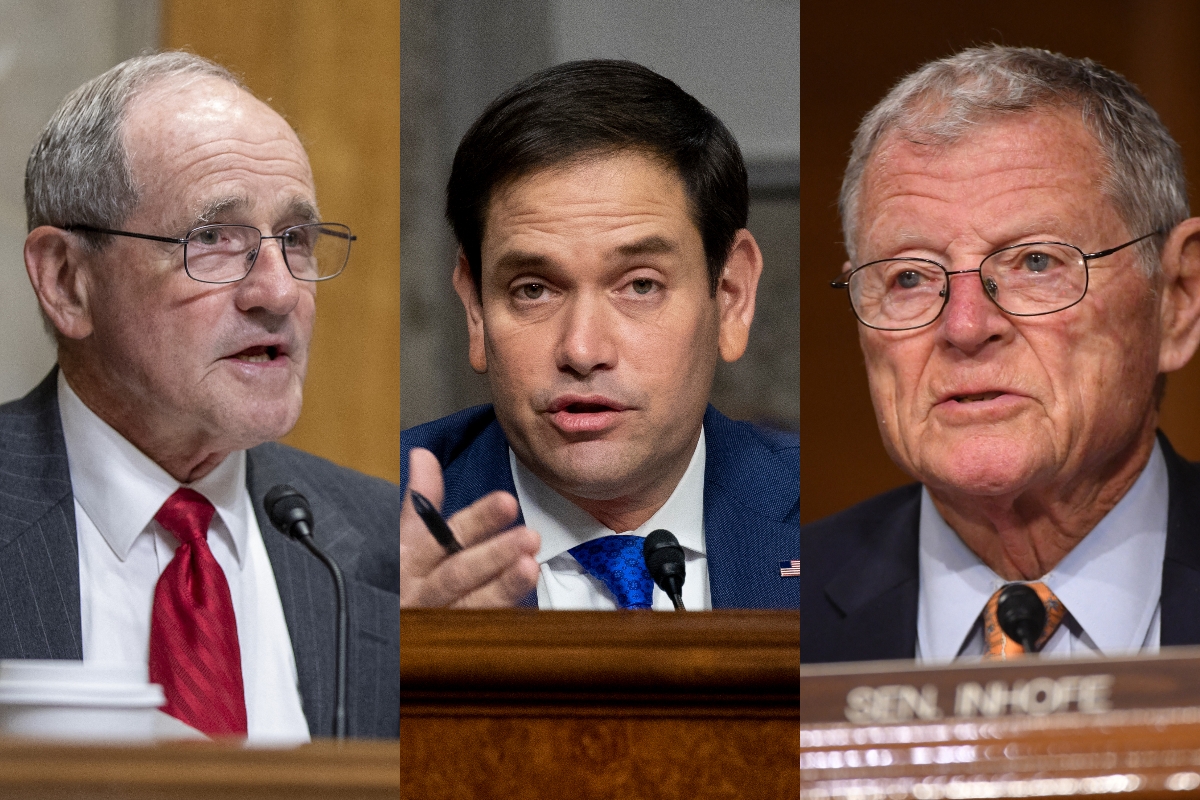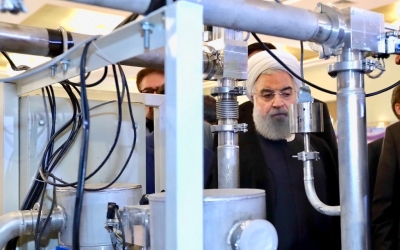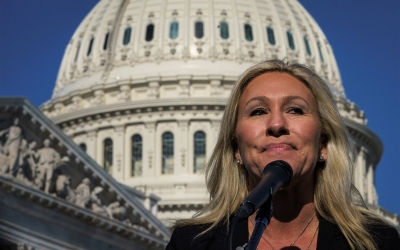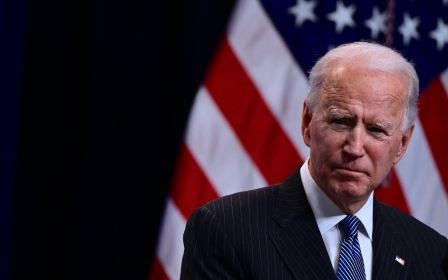Top US Senate Republicans warn Biden against reviving Iran deal

Top US Senate Republicans have warned President Joe Biden against returning to the Iran nuclear deal, urging the administration to consult with Congress, Israel and Gulf partners before entering into a new agreement with the Islamic Republic.
In a letter signed by ranking members of national security-related committees in the Senate, the Republicans said Iran poses a "serious threat" to US national security. They called for a hawkish bipartisan approach to Tehran that addresses the Islamic Republic's regional activity as well as its nuclear programme.
"Your administration's Iran policy must encompass more than a nuclear negotiation. We need consensus on the strategic aims of US-Iran policy and should allocate resources accordingly," the lawmakers wrote.
"Specifically, we believe that our strategic aim is to halt the Iranian regime’s nuclear ambitions and end its destabilizing activities in the region and beyond."
Signatories to the letter include Jim Inhofe, ranking member of the Senate Armed Services Committee; Jim Risch, top Republican of the Senate Foreign Relations Committee; and Marco Rubio, ranking member of the Senate Select Committee on Intelligence.
New MEE newsletter: Jerusalem Dispatch
Sign up to get the latest insights and analysis on Israel-Palestine, alongside Turkey Unpacked and other MEE newsletters
JCPOA impasse
The Republican push comes amid an impasse between the Biden administration and Tehran on how to revive the multilateral nuclear deal.
The agreement, known as the Joint Comprehensive Plan of Action (JCPOA), saw Iran scale back its nuclear programme in exchange for lifting sanctions against its economy.
Former President Donald Trump nixed the agreement in May 2018 and proceeded to pile sanctions against Iranian industries, companies and individuals as part of his "maximum pressure" campaign against Tehran.
In turn, Iran has been downgrading its commitments to the pact by enriching uranium beyond the limits set by the agreement and restricting the access of UN inspectors to its nuclear facilities.
Biden has signalled intentions to return to the JCPOA, which was signed in 2015 when he was then-President Barack Obama's vice president. But reviving the deal has stalled, with Washington insisting that Iran must return to full compliance with the agreement first and Tehran arguing that sanctions relief should be the initial step.
On Sunday, Iran dismissed a US offer for direct multilateral talks to revive the deal, saying that the time is "not suitable" for such a meeting.
"There has still been no change in the US positions and behaviour yet," foreign ministry spokesman Saeed Khatibzadeh said in a statement, accusing Biden of continuing "Trump's failed policy of maximum pressure".
On the same day, Republican senators called on Biden to push on with maximum pressure.
"Despite criticism of the 'maximum pressure' campaign, there is no denying that it has inflicted a cost on Iran for its malign activities and now presents your administration with leverage to obtain a better deal from Iran," they wrote.
'Israeli and Gulf views must be central'
Critics of the sanctions campaign argue that it caused humanitarian suffering in Iran while failing to alter Iran's behaviour in the region. After the US withdrawal from the agreement, Tehran has also amassed more nuclear material, bringing it closer to an atomic weapon - although Iranian officials stress that they are not pursuing military nuclear technology.
In their letter, the Republican lawmakers said US policy on Iran must include expanding normalisation deals between Israel and Arab countries to cement a regional alliance against Tehran.
"To be successful, any negotiation with Iran should be combined with efforts to expand the Abraham Accords, ensure sufficient US deterrence in the region against further attacks, continue to build partner capacity to address the Iranian threat, support reforms that reinforce regional sovereignty, and explore multilateral security arrangements built around like-minded partners," the letter said.
The senators added that the White House should engage Congress, Israel and America's gulf partners while formulating its Iran policy.
They warned that without congressional backing for a new or revived deal, a new Republican president may reverse it as Trump did in 2015.
"On the regional front, Israeli and Gulf views must be central to the administration’s approach, and the administration must take into account the very real concerns of those that actually live under the shadow of the Iranian threat," the letter said.
"In all of these cases, consultations must be more than perfunctory. They must be formal, extensive, and responsive to stakeholders."
Trump speaks out
The senators even reiterated remarks by Israeli officials that Israel may forge its own path regarding Iran.
"We must always keep in mind that regardless of what we or any other nations does [sic], Israel has its own existential threat perception that guides its decision-making regarding Iran and will always act as it sees fit to protect itself, notwithstanding any agreements other parties make, including the United States."
The letter comes days after dozens of Senate Republicans introduced a bill in opposition of lifting sanctions against Tehran - showing a united front against efforts to return to the JCPOA.
On Sunday, Trump himself criticised Biden's policy, falsely asserting that the current president has lifted sanctions on Iran.
"The new administration unilaterally withdrew our crippling sanctions on Iran, foolishly giving away all of America's leverage before negotiations have even begun," said Trump, who appears to be regaining his position as the leader of the Republican Party following internal criticism of his role in the 6 January Capitol riots.
Speaking at the annual Conservative Political Action Conference, which was dominated by pro-Trump voices, the former president repeated his baseless claim that he would have been elected president if it were not for voter fraud.
He said he would have secured a new agreement with Tehran shortly after the election.
"I will tell you something and I said it, had we had a fair election, the results would have been much different and we would have had a deal with Iran within the first week," Trump said.
"They wanted those sanctions off. He [Biden] took them off for nothing, for nothing."
Middle East Eye delivers independent and unrivalled coverage and analysis of the Middle East, North Africa and beyond. To learn more about republishing this content and the associated fees, please fill out this form. More about MEE can be found here.






